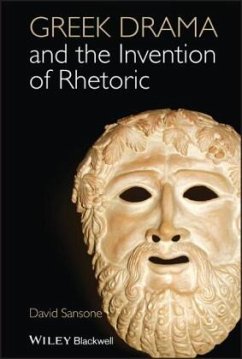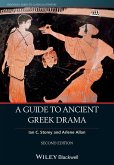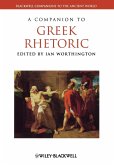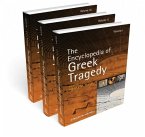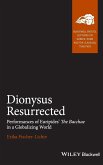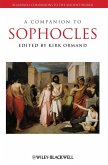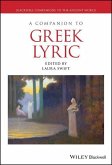This book challenges the standard view that formal rhetoric arose in response to the political and social environment of ancient Athens. Instead, it was the theatre of Ancient Greece that prompted the development of formalized rhetoric.
Asserts a novel and controversial theory on the origins of rhetoric that differs radically from the standard view
Argues that it was the theatre of Ancient Greece, first appearing around 500 BC, that prompted
the development of formalized rhetoric, which evolved soon thereafter
Provides a cogent reworking of existing evidence
Reveals the bias and inconsistency of Aristotle
Hinweis: Dieser Artikel kann nur an eine deutsche Lieferadresse ausgeliefert werden.
Asserts a novel and controversial theory on the origins of rhetoric that differs radically from the standard view
Argues that it was the theatre of Ancient Greece, first appearing around 500 BC, that prompted
the development of formalized rhetoric, which evolved soon thereafter
Provides a cogent reworking of existing evidence
Reveals the bias and inconsistency of Aristotle
Hinweis: Dieser Artikel kann nur an eine deutsche Lieferadresse ausgeliefert werden.
"Every reader, both novice and expert, will learn a great deal from this insightful and refreshing study." (Vorlagen und Nachrichten, 1 November 2014)
"The book is lively and readable, and should be read by everyone interested either in tragedy or in the origins of rhetoric." (Bryn Mawr Classical Review, 16 June 2013)
"Sansone considers a wide range of text and offers a valuable discussion of how many features of formal rhetoric may be traced back to drama and earlier literary genres." (Anglo-Hellenic Review, 1 March 2013)
"The book is elegantly and often wittily written, with a wide range of cultural reference, and can strongly be recommended to anyone interested in the drama of any period." (Rogueclassicism, 26 February 2013)
"The book is lively and readable, and should be read by everyone interested either in tragedy or in the origins of rhetoric." (Bryn Mawr Classical Review, 16 June 2013)
"Sansone considers a wide range of text and offers a valuable discussion of how many features of formal rhetoric may be traced back to drama and earlier literary genres." (Anglo-Hellenic Review, 1 March 2013)
"The book is elegantly and often wittily written, with a wide range of cultural reference, and can strongly be recommended to anyone interested in the drama of any period." (Rogueclassicism, 26 February 2013)

